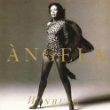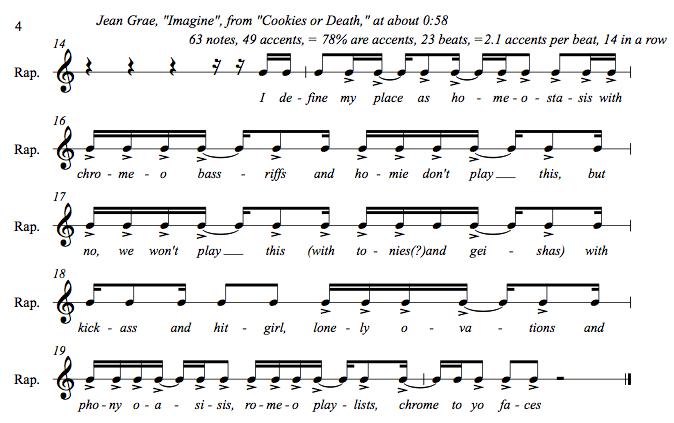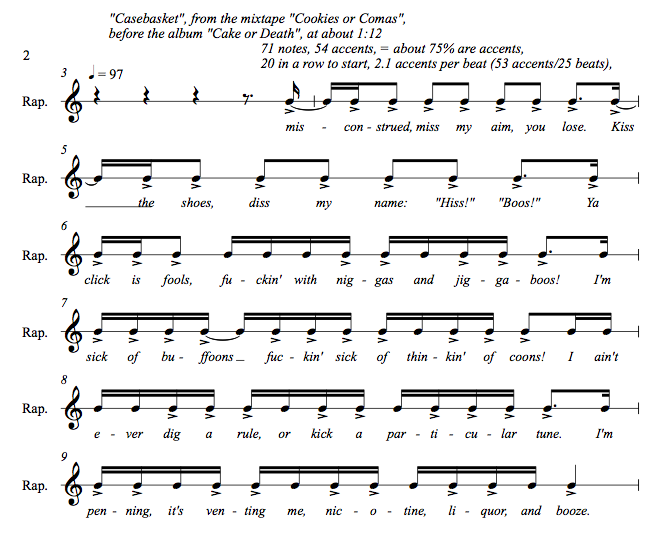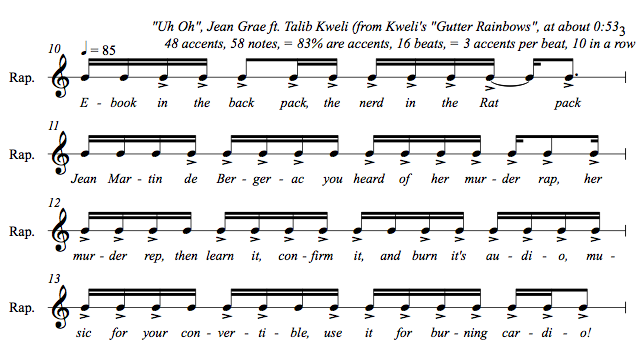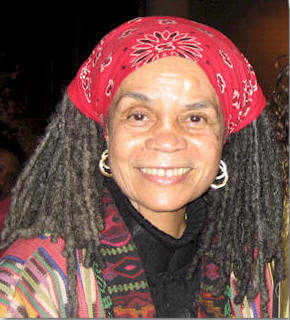
SONIA SANCHEZ
• September 9, 1934 Sonia Sanchez, poet and playwright, was born Wilsonia Benita Driver in Birmingham, Alabama. In 1943, Sanchez moved to Harlem, New York to live with her father. In 1955, she earned her Bachelor of Arts degree in political science from Hunter College. Sanchez has authored over a dozen books of poetry, including “Love Poems” (1973), “Homegirls and Handgrenades” (1985), “Does Your House Have Lions” (1997), and “Morning Haiku” (2010), and six plays, including “The Bronx is Next” (1970) and “I’m Black When I’m Singing, I’m Blue when I Ain’t” (1982). She has also edited two anthologies on black literature, “We Be Word Sorcerers: 25 Stories by Black Americans” (1974) and “360 Degrees of Blackness Coming at You” (1999). Sanchez has taught at eight universities and has lectured at over 500 college campuses. She was the first Presidential Fellow at Temple University where she began working in 1977 and held the Laura Carnell chair until her retirement in 1999. In 1969, she was awarded the P. E. N. Writing Award. She also won the National Academy and Arts Award and the National Endowment for the Arts Fellowship Award in 1978-1979.
>via: http://thewright.org/explore/blog/entry/today-in-black-history-992012
__________________________
Sonia Sanchez speaks to students, faculty and staff on Wednesday, Jan. 18, 2006, in Price Auditorium at Lock Haven University in honor of Martin Luther King Jr.
A poet's journey:
Sanchez relays her experiences as a writer
LOCK HAVEN, Pa. - On Wednesday, Jan. 18, 2006, the famous poet and activist Sonia Sanchez visited Lock Haven University and was the speaker for the annual Martin Luther King Jr. Celebration, hosted by the university's department of social equity in Price Auditorium.
Sanchez, the author of over 16 books and a Robert Frost Medalist, Ford Freedom Scholar and Otto Award winner, spoke to students, faculty and staff about her experiences growing up, her activist years and her influences.
Before the event, the poet took some time to answer questions from the university public relations department on advice to young writers. The following is an excerpt from that interview:
Q. In an interview on New York's QBR Radio a few years ago, you mentioned how a school teacher had discouraged you from becoming a writer. You said she believed that black Americans weren't meant to be writers, ignoring great black writers such as W.E.B. Du Bois and Langston Hughes, who was publishing a lot during your childhood years. What advice would you have to our college-age students who have faced discouragement in their own lives?
A. I always tell young students in universities and high schools -- I go to a lot of high schools and junior high schools -- that there is a great tradition of black writing, which means part of American writing, in this country. And, you must never let anyone discourage you. The problem, quite often, in high school and junior high school, and even on the university level, is students don't encounter black writers or the Latino writers, or the Cuban writers. They don't encounter writers "that perhaps might look like themselves." But I always say to them that there are people who teach some of these courses and they should try to gravitate to a course that will have African American or a Latino or a Native American or Chicano classes. And that way they begin to see there are different voices and other voices there. The person who said this to me was not a teacher, but she was an advisor. And she asked me... I was really having difficulty, I had gone to Hunter (College, New York City) at 16, and now I was 18, and I just never saw anything that even looked like me. I was getting very discouraged and I started cutting my classes. And I was called down to her, and she said, "What do you want to be?" And, you know, Hunter was a place for women and encouraged blacks and what I call "people of color" to be nurses, teachers and social workers -- always those kinds of things. And I said to her, because she looked like someone's grandmother, white-haired... "You know, I'd like to be a writer." And she laughed. She leaned back and she laughed. She said, "There are no Negro…" -- at the time, the word Negro was used -- "There are no Negro writers. You have to be realistic. We bring you people here to be… You can be a social worker, a teacher or a nurse." And at that point when she said that, a part of me knew there was something wrong because I had heard of black writers. So, I knew they existed, you see. We just were not learning them, and they weren't being taught in the universities. And at that point, when she started asking me other questions, I just sat there and looked at her. I was so, utterly amazed and upset that I did not answer any other things. She was very annoyed at me. But, that's what I talked about on the radio station.
Q. So, it sounds like you didn't take that as something to be discouraged about in your life and you went and sought things on your own?
A. Well, I did, but it meant that I had to go seek out those things, so I went and I sought out the poetry readings that black writers were doing. When I got out of school, I was blessed to meet someone by the name of Jean Hudson who was the curator there at the library and she gave me books by black writers… I went to used bookstores at this point… Ms. Hudson sent me there… Mr. Mashow's bookstore on 125th Street… and there, they gave me books, and I began to read all of these books -- not only poetry -- but all of the history and "herstory" of black people, and it gave me a sense of myself, finally, in this country.
Q. Do you think that taking African American literature classes is important to learn the style of people like Langston Hughes?
A. One takes African lit courses not to just celebrate writers, but also to say to people, "This is within the milieu of American literature." You really will never understand Ben Franklin's autobiography unless you do Frederick Douglass' autobiography, because they are closely linked. You really don't understand what happens in the South, the reconstruction, until you read Dubois' "Black Reconstruction." Du Bois' great epic book, "Black Reconstruction," gives us what happened economically in the South and so we learn what really happened in the South and the reasons why that you had to have years later with MLK (Martin Luther King Jr.), or Rosa Parks, or those four brothers who went and sat down at the counter and waited to be served… If people had begun to deal with this, then you would not have had this kind of massive movement in the country, but also, as it extended in the world. When those Chinese students stood up against tanks, they were singing, "We shall not be moved. We shall overcome." The history of Martin Luther King moves out around the world. And so, today what I'm going to talk about my life as it relates Martin Luther King, and the impact he's had, not only on me, but on the world, and the impact that he should be having today too if people were not just celebrating just one speech, "Going to the Mountain Top," but also his speeches that he gave near the end of his life at Riverside Church that talk about economics, and also, empowerment, and also, an understanding about what was going on in the world with the Vietnam War. I'm so happy to be a part of a movement that introduced black literature to the university, and it's a thing that the black, the white, the Latino, the Asian students come into my class to learn. And you see them open up their eyes. You turn to the students in the class and then they have a better sense of the black students who are on those campuses. This is the kind of empowerment that we are talking about, finally.
Q. When you were at Temple University, did you enjoy teaching college-age students?
A. Teaching 18-, 19-, 20-year old students, they say, will keep you alive, will keep you young. But what was important to me was that I saw students come into a classroom who had never, ever had a black teacher, you know, and they'd be very uneasy as they sat there. And then, by two or three weeks, we're like coming in the class and they say, "Hey, prof… How are you doing, Professor Sanchez? I saw you on television last night. Yeah, you know, like. I said to my parents, like, that's my teacher, Professor Sanchez. She really told them what this country was all about." And these are white, male students -- the football players, you know, who walk across campus and say, "Yo, pro… Professor Sanchez." And you say, "Yo, how you be?" What I'm saying, finally, is that, you see, this thing called education, this thing called teaching, will transform, will make people reach out to one another, will open up people's hearts and eyes and minds with each other. But, you've got to be there to do it. And it is important that we must do it.
Q. It appears that you started publishing in your thirties.
A. You know, because we got out of school and began that long, slow process... my long, slow process of publishing came through small journals, the "Minnesota Review," the "New England Review," the "Transatlantic Review," all these little journals that were happening. And so you get a reputation of being a writer. You know. So it was no quick kind of… Because actually, to be frank, many people still do not think that black people can write poetry. Even though I was publishing in small journals, none of the big publishing companies thought about publishing black writers. Langston Hughes and Gwendolyn Brooks were the people who had contracts with big publishing companies. We didn't, so therefore a great press called Broadside Press cam about. Dudley Randall, out of Detroit, Mich., published a book called "For Malcolm" with a woman by the name of Dr. Margaret Burroughs, after the assassination of Malcolm (X) in this country. And he called on all blacks and whites in America to send poems for this book and we all did. Well, that book was so successful. If you could ever find it, get it. It's worth a lot of money. He decided, "I am going to establish a publishing company called Broadside Press." And in that press was Gwendolyn Brooks, Dudley Randall, Haki Madhubuti, Etheridge Knight… we were publishing and our books sold in the hundreds of thousands because our books were affordable to people. Because, when we went on trips, we would take our books with us, like Langston. Langston would travel from New York to the South and he had suitcases. In those suitcases were his books, because he said the big publishing companies would publish him, but they wouldn't promote his books. And when I went South again for the first time for a reading and I went into people's homes, I saw two books in their houses. Guess what they were? The Bible and a collection of Langston Hughes' poetry, and we all went, "Whoa… Got it, Langston. This is what you do." As you travel around the country, make sure you bring your books with you. When you finish reading, people want your books. Langston could then go from city to city because he sold his books. It was an amazing moment for us. So, we were the group of poets -- Broadside poets -- and when we had meetings and readings, we came with a suitcase full of books. We'd finish and we'd set up and we'd sign our books, but I'd go back years later to people's homes… People would come out to my readings now, and they would say, "Look, Professor Sanchez, I have your first book. I have your second book. I have your Broadside Press book." I said hold on to them, because I had set out a display once and someone picked up my first editions of "Homecoming" and "We a BaddDDD People." And I told sister Gwendolyn Brooks some years before she died, and luckily enough she saved me some first editions. But you go on the Net and get the first edition of "Homecoming" and they are going to charge you $100 for a book that first cost $1. Hold on to all those books.
Q. It takes a lot of confidence to get as far as you've gotten. Did it take a while for you to find a voice, or is that something that you've always had?
A. You know, I always tell my students as I teach my workshops that that voice comes. It takes time. Initially, you might imitate other writers who are writing out there. But if you are willing to continue and struggle and read, above all, and get in workshops -- workshop your works as well, too. And, above all, be willing to stand in front of people and share your work with people. Your voice comes… that voice, that intrinsic voice that is yours, that wonderful voice. One day, you look up and you know it's your voice. You know, it's no one else's voice but your own. You know that you finally have gotten a voice that will speak to not only your own soul, your own heart, and your own spirit, but a voice that will speak to other people, too. So, it takes time. You are not going to, all of a sudden, start writing and all of a sudden say, "Gosh, I have my voice." That voice takes time to develop because you are talking about having ideas about the world, looking at the world in a different way, perhaps the way other people haven't looked at the world. You use your words in a different sense that perhaps other people look at you and say, "You know, I haven't heard that voice before. I haven't heard those words before." So, it takes a minute to find your voice, but by golly, by gee, you know when you find it, it is yours. And you kind of like start running, and you are smiling and you are saying, "I know I have my own voice now. This is my voice that will speak to people, at some point." It is a lovely feeling.
Lock Haven University of Pennsylvania is a member of the Pennsylvania State System of Higher Education (PASSHE), the largest provider of higher education in the commonwealth. Its 14 universities offer more than 250 degree and certificate programs in more than 120 areas of study. Nearly 375,000 system alumni live and work in Pennsylvania.
###







